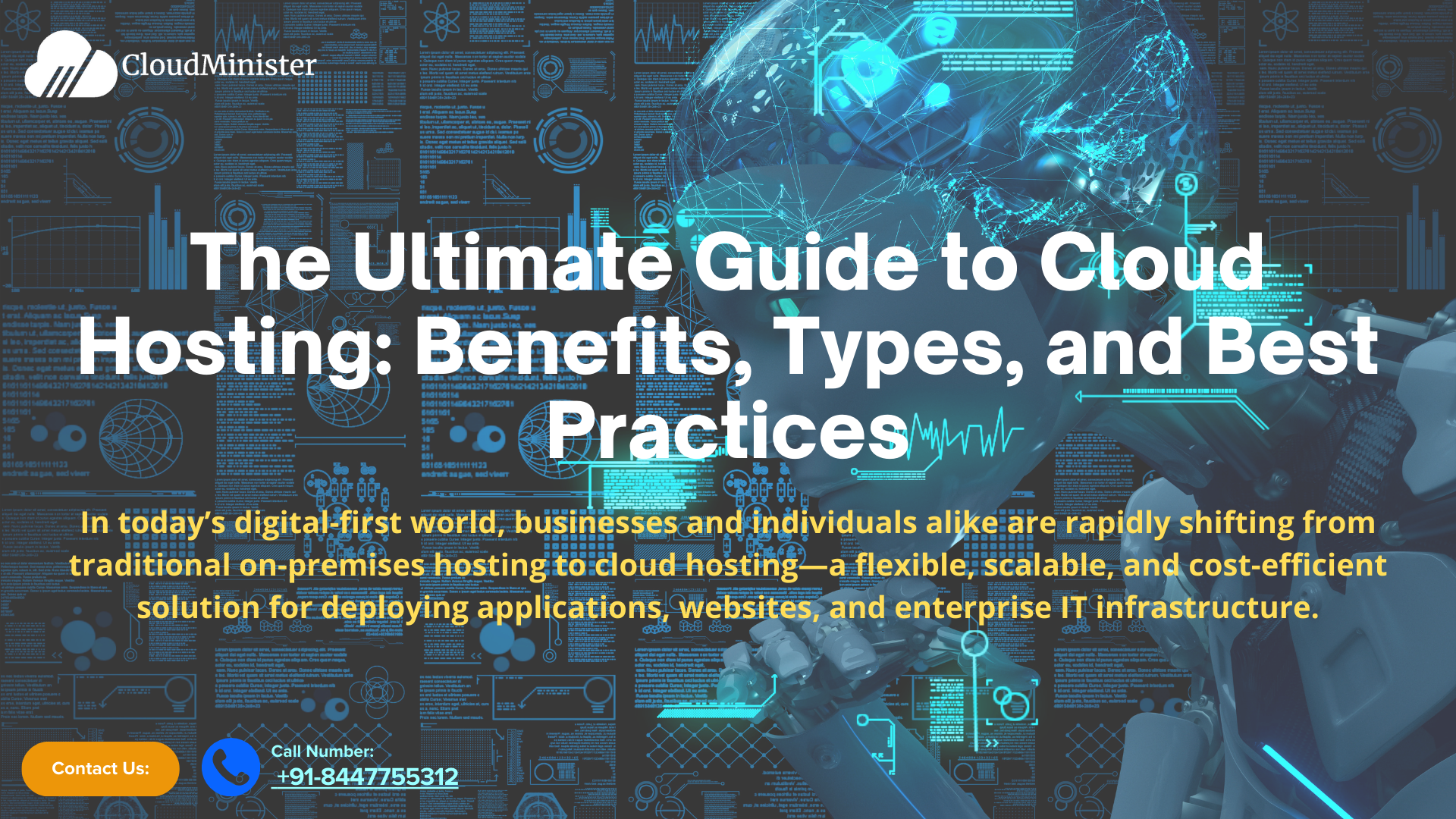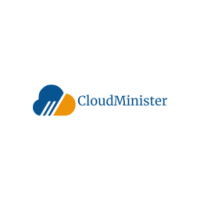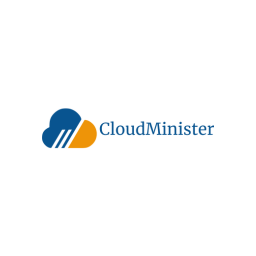The Ultimate Guide to Cloud Hosting: Benefits, Types, and Best Practices

Strong 8k brings an ultra-HD IPTV experience to your living room and your pocket.
In today’s digital-first world, businesses and individuals alike are rapidly shifting from traditional on-premises hosting to cloud hosting—a flexible, scalable, and cost-efficient solution for deploying applications, websites, and enterprise IT infrastructure.
Cloud hosting leverages remote servers hosted in data centers worldwide, allowing users to access computing resources on-demand without managing physical hardware. Whether you're a startup, an enterprise, or a developer, understanding cloud hosting is essential for optimizing performance, security, and cost-efficiency.
This comprehensive guide explores:
What is Cloud Hosting?
✔ Types of Cloud Hosting (Public, Private, Hybrid, Multi-Cloud)
✔ Key Benefits of Cloud Hosting
✔ Top Cloud Hosting Providers
✔ Best Practices for Cloud Hosting Success
1. What is Cloud Hosting?
Cloud hosting is a virtualized hosting solution where websites, applications, and data are stored across multiple interconnected servers instead of a single physical machine. These servers are part of a global cloud infrastructure, managed by providers like AWS, Google Cloud, Microsoft Azure, and others.
How Does Cloud Hosting Work?
Resources (CPU, RAM, storage) are pooled from multiple servers.
Users access these resources on-demand via the internet.
The cloud provider handles maintenance, security, and scalability.
Cloud Hosting vs. Traditional Hosting
2. Types of Cloud Hosting
There are four primary cloud hosting models, each suited for different business needs:
A. Public Cloud Hosting
Definition: Resources are shared among multiple users (multi-tenant environment).
Best for: Startups, SaaS companies, scalable web apps.
Examples: AWS EC2, Google Cloud, Azure Virtual Machines.
✅ Pros:
✔ Cost-effective (pay only for what you use).
✔ No hardware maintenance.
✔ Instant scalability.
❌ Cons:
✖ Less control over security.
✖ Potential "noisy neighbor" effect (shared resources).
B. Private Cloud Hosting
Definition: Dedicated cloud infrastructure for a single organization.
Best for: Enterprises with strict compliance needs (banking, healthcare).
Examples: VMware, OpenStack, IBM Cloud Private.
✅ Pros:
✔ Enhanced security & compliance.
✔ Full customization.
❌ Cons:
✖ Higher cost.
✖ Requires in-house IT expertise.
C. Hybrid Cloud Hosting
Definition: Combines public + private cloud for flexibility.
Best for: Businesses needing both security and scalability.
Examples: AWS Outposts, Azure Stack.
✅ Pros:
✔ Balance between cost & security.
✔ Sensitive data stays private, while scalable apps use public cloud.
❌ Cons:
✖ Complex to manage.
D. Multi-Cloud Hosting
Definition: Uses multiple cloud providers (AWS + Azure + Google Cloud).
Best for: Avoiding vendor lock-in, maximizing uptime.
Examples: Netflix (uses AWS + Google Cloud).
✅ Pros:
✔ Redundancy (if one cloud fails, another takes over).
✔ Best-of-breed services from different providers.
❌ Cons:
✖ Higher management complexity.
3. Key Benefits of Cloud Hosting
1. Cost Efficiency
Pay-as-you-go pricing (no upfront hardware costs).
Auto-scaling reduces wasted resources.
2. High Availability & Uptime
99.9%+ SLA guarantees (unlike single-server setups).
Global CDN integration (faster load times worldwide).
3. Scalability (Vertical & Horizontal)
Handle traffic spikes (e.g., Black Friday sales).
Kubernetes & Docker support auto-scaling.
4. Enhanced Security
Encryption (TLS, AES-256).
DDoS protection & AI-driven threat detection.
5. Disaster Recovery & Backups
Automated snapshots (AWS EBS, Azure Backup).
Geo-redundant storage (data replicated across regions).
4. Top Cloud Hosting Providers (2024 Comparison)
Provider Best For Free Tier? Global Regions
AWS (Amazon Web Services) Enterprise, AI/ML ✅ (12 months) 32+
Google Cloud Big Data, Kubernetes ✅ ($300 credit) 39+
Microsoft Azure Hybrid Cloud, Windows Apps ✅ ($200 credit) 60+
DigitalOcean Startups, Simple Apps ❌ 12+
Alibaba Cloud Asia-Pacific Market ✅ (limited) 28+
5. Best Practices for Cloud Hosting Success
1. Choose the Right Cloud Model
Startups → Public cloud (AWS, Google Cloud).
Enterprises → Hybrid or private cloud.
2. Optimize Costs
Use spot instances for non-critical workloads.
Set budget alerts to avoid bill shocks.
3. Implement Strong Security
Enable Multi-Factor Authentication (MFA).
Follow CIS Benchmarks for cloud hardening.
4. Automate Deployment (IaC & DevOps)
Terraform for infrastructure as code.
CI/CD pipelines (GitHub Actions, Jenkins).
5. Monitor & Optimize Performance
Use Prometheus + Grafana for metrics.
Enable Cloud CDN (Cloudflare, AWS CloudFront).
Conclusion
Cloud hosting is the future of IT infrastructure, offering unmatched scalability, security, and cost savings. Whether you're migrating from traditional hosting or building a cloud-native app, choosing the right cloud model, provider, and best practices is crucial for success.
🚀 Ready to move to the cloud? Consult Cloudminister Technologies for expert cloud migration & management!
About Cloudminister Technologies
We specialize in cloud solutions, cybersecurity, and IT infrastructure, helping businesses optimize performance while reducing costs.
📞 Contact us today for a free cloud assessment!
Note: IndiBlogHub features both user-submitted and editorial content. We do not verify third-party contributions. Read our Disclaimer and Privacy Policyfor details.



